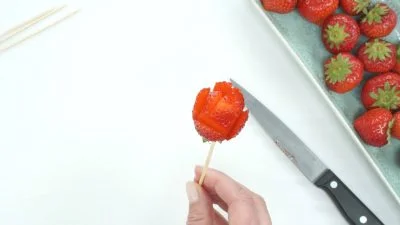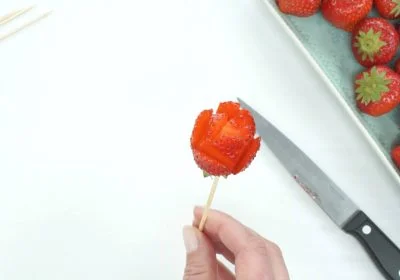1. Keep reusable tote bags in your car so you always have them on hand for last-minute shopping trips. Bags getting dirty? Wipe sturdy plastic ones with a damp cloth. Canvas ones can go in the wash.
2. Look for fish and seafood labels that indicate sustainable sourcing, whether you’re buying fresh, frozen, or canned. These fishing methods help protect the oceans from damage and a depleted supply.
3. Write a meal plan based on what you already have in your fridge so nothing goes to waste and have a plan for using up leftovers. Keep a shopping list in a visible spot so you can add to it during the week.

5. Organize your freezer and pantry so you can see exactly what you have. Put new pantry items behind old ones so you use these last and label what you freeze so it’s easy to identify.

6. Store your fruits and veggies for maximum freshness by keeping in separate crisper drawers. Dab off any excess water before refrigerating and keep in open produce bags so produce doesn’t dry out.
7. Give your dishwasher, refrigerator, and oven a deep clean every few months to prevent clogs, mold, and burnt-on food stains. Your appliances will work better for longer!
8. Recycle, recycle, recycle. Check your town’s guidelines for pickup days, how to sort recyclables, and what can’t be recycled. Rinse items well—bit of stuck-on food can cause recyclables to be discarded.

9. Try composting. Instead of throwing away your kitchen scraps, keep in an airtight container in your freezer. Find composters for your garden at most home improvement stores.
10. Use insulated drink containers instead of paper or plastic. Your drinks will stay cold or hot longer, and you won’t spend extra on disposable cups.
11. Use cleaners and detergents that are made without artificial fragrances, dyes, or harsh chemicals. Don’t forget to recycle the bottle!

12. Store food in airtight, BPA-free containers instead of disposable foil or plastic wrap. Sort through your stock and recycle lids and containers that are missing a mate.
13. Care for your cookware to help it last longer and perform better. Clean kitchen knives by hand and keep sharp. Cool stainless-steel pans before handwashing so they don’t warp. Use a soft sponge to protect the coating on nonstick pans.
14. Be mindful not to leave lights and ovens on, faucets running, and refrigerator doors open. You’ll waste less and your utility bills will be lower.

15. Get your family involved! A great way is to care for a garden! Whether it’s outside or a few container plants, together is a great way to appreciate the environment.




